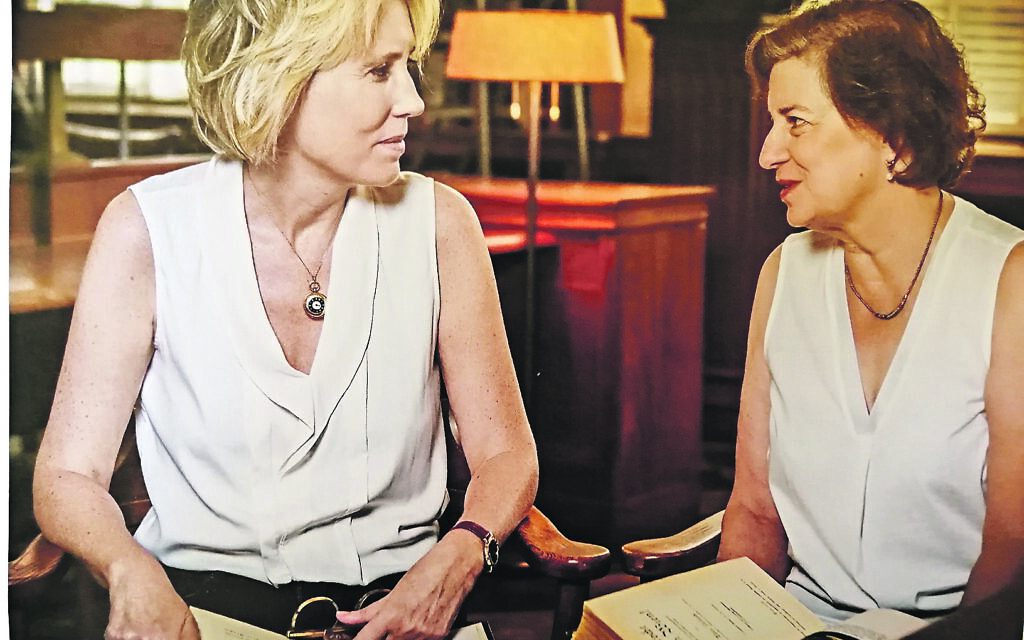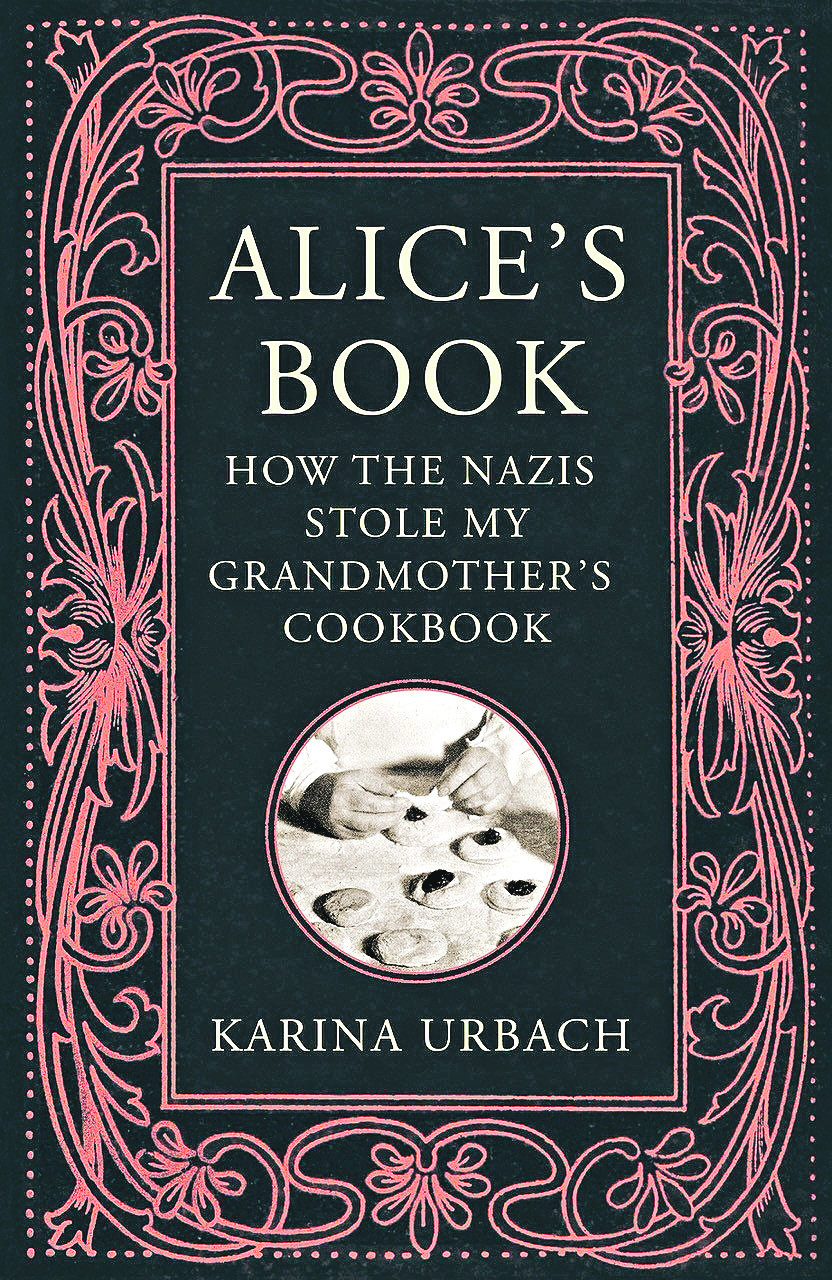News:
Cooking the Books: a tale of copyright theft
By Alex Galbinski
The granddaughter of a woman who wrote a bestselling cookbook in 1930s Vienna explains why it was so important to restore her authorship after Nazi ‘Aryanisation’

Cousins Karina and Katrina
Karina Urbach grew up with two versions of a bestselling cookbook in her home. One had the author listed as her paternal grandmother, Alice Urbach, whom she knew was a great cook, and the other a man called Rudolf Rösch. But the cookbooks were practically identical – save, mainly, for the introduction and some references to names that were removed from Rösch’s version. Both included photographs of Alice’s hands while cooking.
It was much later, in 2014, when Karina’s cousin, Katrina, who lives in the US, sent her Alice’s old letters and tapes, that she decided to investigate. She ended up writing about what happened – the intellectual theft and Aryanisation of Jewish authors during the Nazi period. Unlike the subjects of looted art and property, this has not, she says, really been looked at until now.
Karina’s recently-published non-fiction work, Alice’s Book: How the Nazis Stole My Grandmother’s Cookbook, beautifully and painstakingly pieces together the story of Alice, whose life traversed great times – briefly – and then plunged to the depths of despair during the Nazi-era and the Holocaust, in which three of her sisters were murdered.

Born in Vienna in 1886, Alice Urbach was one of the youngest of six children. Her father had established an extremely successful textile business and the family was prospering. Her older siblings were all finding ways to shine, but she gained no educational qualifications and felt overlooked. It was only when she entered the kitchen that she felt at home. Karina, who is married to a Russian historian and lives in Cambridge, meticulously reveals how Alice’s culinary skills ended up saving her life.
Alice’s husband (with whom she had had an unhappy marriage) died in 1920, having squandered their money through gambling. The 34-year-old Alice was left with two boys, Otto and Karl, and in need of an income. She started cooking – first catering for the parties of her wealthy sister, Helene, and then giving classes before opening a cookery school and even delivering ready-made meals.
Alice published the bestselling So kocht man in Wien! (Cooking the Viennese Way!) in 1935 and, by 1938, had submitted two more manuscripts to her publisher, Hermann Jungck, at Ernst Reinhardt.
But her self-made success did not last long. After Germany’s annexation of Austria, Jews lost their jobs and were then in danger of disappearing and being murdered.
Katrina’s father, Karl, was sent to Dachau, but fortunately, thanks to the efforts of Karina’s father Otto, was released. He fled to the US to join Otto, who had gone there to study and later became a US intelligence agent, a role he performed in post-war Germany.
Alice managed to leave for England in October 1938, gaining employment as a cook in a castle owned by an eccentric woman. She was later approached to head up, along with her best friend Paula Sieber, a home for 24 Kindertransport refugees, who were evacuated to Windermere and who were severely traumatised.
Meanwhile, her publishing house had removed from her book all trace of her – apart from the photos of her hands – and republished it under Rudolf Rösch’s name. This was a common get-around for publishers who wanted to continue printing lucrative books during the Nazi period.
Having moved to the US to be with her sons, Alice visited Vienna in 1949, and spotted her book with the name Rösch (his identity remains a mystery) in a bookshop. Perplexed as to why this was still the case, she, along with other family members, wrote many polite letters asking for her authorship to be restored and for a meeting with the publishers – but to no avail.
For Alice, although she wasn’t bitter, and had experienced so much grief in her life, the loss of her cookbook – which she referred to as her “third child” – was “momentous”, says Karina. “It ruined all her chances of ever having a career as a cookbook author again. If the book had been published under her name again, she could have returned to Austria and continued her career but, instead, she had to do low paid work in the States as a nutritionist.”
What happened to Alice was part of a large-scale fraud that German publishers continued to practice after the war, argues Urbach. “None of the [other] Jewish non-fiction authors I have identified so far [in the book] got their authorship back after the war,” she tells me.
“The scoop of my book is that I found, for the first time, that German publishing houses ‘Aryanised’ Jewish non-fiction books. They didn’t just steal the physical books, they also stole authorship, but they never gave it back after the war – that is the true crime.”
Finally, in 2020, after Karina’s book was published in German and four other languages, media interviews raised the issue and the publishing house ‘found’ its archive relating to Alice – which it had previously said no longer existed – and apologised.
It said its actions were “morally indefensible” and restored Alice’s rights to her book, 40 years after her death. “I thought this would never happen,” Karina admits.
Karina writes in her book that Alice wanted to be remembered for her adventures and actions. She will certainly be remembered for her care of the refugee girls, most of whom ended up as orphans. Now, thanks to Karina and Katrina, she will also be remembered for her legendary and much-loved recipes.
Alice’s Book: How the Nazis Stole My Grandmother’s Cookbook by Karina Urbach is published by MacLehose Press and is out now, RRP £20


